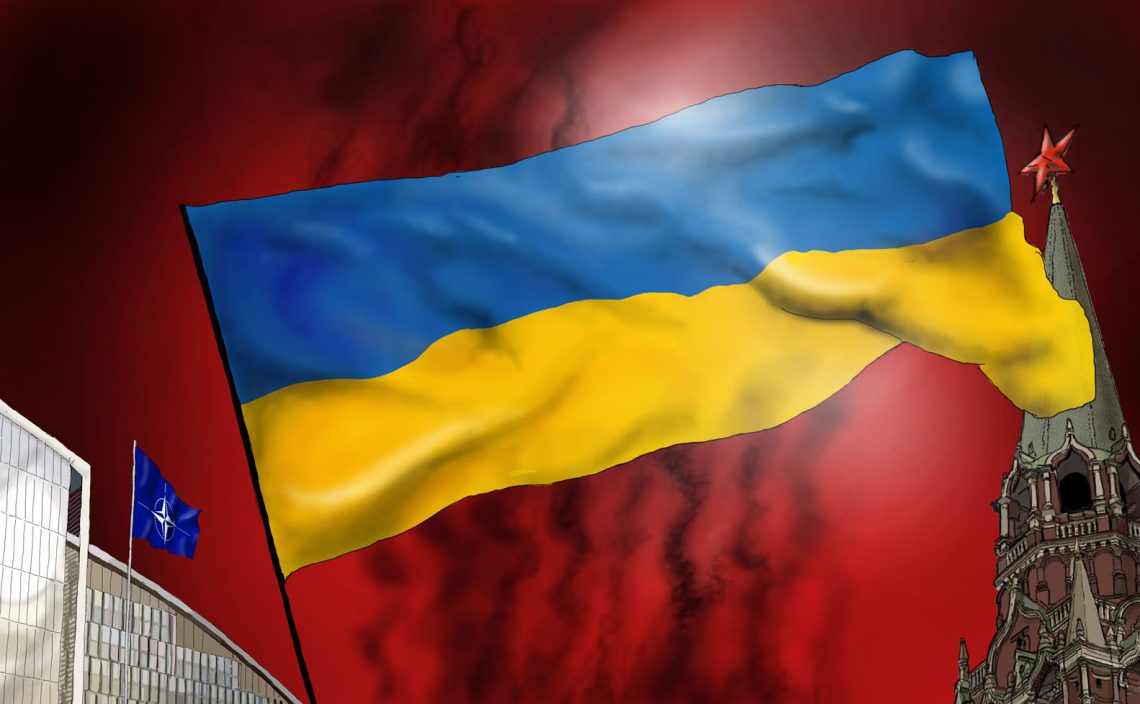The Ukrainian tragedy
Now that Russia has invaded Ukraine, European states would be well-advised to rethink their defense strategies to prevent other devastating wars.

Early in the morning on February 24, Russia invaded Ukraine from different directions. After initial rapid progress, the patriotic resistance of the Ukrainian forces, with extensive support from volunteers and the civilian population, managed to slow the Russian troops.
Ukraine is resisting. Russia’s blitzkrieg attempt might not work out as planned. Ukrainian volunteers – even Russian speakers – have lined up to be trained for resistance. Households in Kyiv are preparing Molotov cocktails to destroy Russian tanks in street fights. Others are donating blood to the medical services. During interrogations, Russian prisoners of war appear taken aback not to have been welcomed as liberators, but met with resistance. Ukraine deserves profound respect for its bravery and determination.
But, Ukraine’s courage notwithstanding, Russia’s military is stronger. The Ukrainian side has received diplomatic and materiel support, but no direct military assistance from NATO. Moscow insists on demilitarizing the country.
Moscow has proposed holding “peace” talks in Minsk, while Kyiv has suggested Warsaw. Preconditions are to be set by Russia – meaning they will likely be unacceptable. President Zelensky may allegedly agree to demilitarization. One hope is that Turkey will be able to negotiate a summit without preconditions.
Ukraine’s courage notwithstanding, Russia’s military is stronger.
Two weeks ago, GIS published the following statement:
“Unfortunately for Ukraine, the country is a chip in a bigger geopolitical poker game between the West and Russia. Instability in areas of Ukraine will prevent it from joining NATO, fulfilling Moscow’s strategic goals as long as it cannot obtain a commitment that the country will not accede to the alliance. The Minsk protocol, meant to end the violence in eastern Ukraine, had many inconsistencies. It might have worked in an atmosphere of consent and good faith, but not under the climate of contention that prevailed. By openly moving its troops into the breakaway Ukrainian regions, Russia has now officially contravened the Minsk agreements, which call for all foreign forces to leave the area.
The West tends to view the conflict through the prism of the Helsinki Accords, while Moscow has not forgotten the philosophy of the Yalta agreement. Both sides interpret agreements reached at the time of German unification and NATO enlargement differently.”
This is still valid. Unfortunately, the consequences of these conflicting positions, and of the West’s indecisiveness, is a wide-ranging military conflict. Ukraine needs all the help it can get.
I was wrong to doubt the United States assertions that there would be a full-scale invasion. Russia has invaded. Whatever happens this week, the situation will result in a new European security architecture emerging.
The Ukrainian lesson
Europe’s defense is weak, and many European states are unwilling to invest in their military. There is also a lack of cooperation between countries.
Today, Ukraine is paying the price for these inadequacies. Tomorrow, it could be another state. The illusion of a rule-based world order according to vaguely defined Western values has proven unrealistic. Big powers like China, Russia and Iran are not playing along. Supranational institutions like the United Nations have failed.
These issues in the European security architecture have to be acknowledged. If Europe realizes its impotence, then hopefully it can realign. The invasion of Ukraine should be a wake-up call.
By now it should be clear to everybody that Europe needs a credible defense. Improved military capabilities will also be needed to handle problematic situations in neighboring areas like North Africa and the Middle East, as well as to protect European interests worldwide. Germany especially has to realize that peace comes at a price. The European Union has proven ineffective. It is already overburdened and the present attempts to create a European budget and transfer union might prove the final nail in the coffin. The only valid reason that would justify a European budget and tax is defense.
It is possible that larger countries could enter into a closer defense collaboration within NATO, creating a European legion of sorts. Such plans have existed for a long time. To keep this structure separate from the EU would allow the United Kingdom to take part. A group consisting of France, Germany, Poland, the UK and a southern country would constitute a powerful force.
The West’s most urgent challenge is to lend all the assistance it can to Ukraine. But in the longer term, it will also have to draw lessons from the situation.
German investments in defense may convince Russia of Europe’s willingness to improve its security. Already during the 2014 crisis, we wrote that the best way to discourage Russia from further disruptions would be investing in the Bundeswehr, not sanctions. But the opposite happened.
Right now, the West’s most urgent challenge is to lend all the assistance it can to Ukraine. But in the longer term, it will also have to draw lessons from the situation.
GIS has long argued that the key to more equitable relations between Europe and Russia is not hypocritical value-driven policy but credible military deterrence and civil defense.
